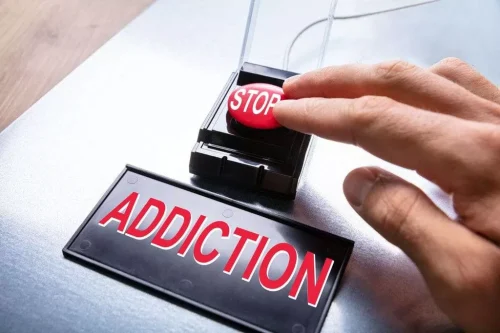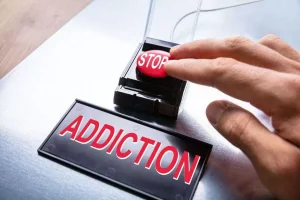What Happens When an Alcoholic Starts Drinking Again?
22/02/2022



 Email Marketing
Email Marketing

These individuals are sucked back into the vicious cycle of losing control of their actions and desires. This cycle is accompanied by feelings of shame and guilt, leading them to drink more and increasing the severity of their alcoholism. If you are reading this advice because you’ve reached a milestone in your sobriety, congratulations!

Can I prevent alcohol withdrawal?

A 2021 review of research notes that several studies determined that two to four weeks of abstinence from alcohol by heavy-alcohol users helped reduce inflammation and bring down elevated serum levels in the liver. While there is no cure for alcoholism, recovery from the disease is possible. With treatment, vigilance and support, you can break free from the bonds of addiction and start living a better and brighter life. Millions of recovering alcoholics find that continued participation in 12-step programs such as Alcoholics Anonymous is crucial to maintaining their sobriety. These support groups consist of men and women who share their experiences in addiction and provide hope and accountability for one another.

Can I Start Drinking Again After Rehab?
If you need help or feel like you could be on the cusp of a relapse, remember that addiction is a chronic disease. You wouldn’t expect that you could self-treat hypertension or diabetes without the help of medical professionals. If you need support, help, or have questions, please contact our team at The Recovery Village.
The 3 Stages of Relapse
Next, members learn how to cope with addiction, avoid triggers and find peace in their sobriety by working the 12 Steps in order. The person is committed to changing negative behaviors and is taking steps to seek treatment and begin https://ecosoberhouse.com/article/alcohol-detox-side-effects-what-bad-can-happen/ recovery. At Genesis Recovery, we are here to answer all your questions regarding alcohol use disorder, the process of recovery, and the slip-ups that come along with it. Contemplation can be an uncomfortable process, and feelings of guilt, shame, hopelessness and desperation are common as people reach this crossroads in their addiction journey. Individuals may waffle back and forth between wanting and not wanting to change. They may decide, for instance, that they’re going to seek treatment sometime in the next six months but won’t set a definite date.
- Some people who achieve long-term sobriety continue to display the same impulsive and dysfunctional behaviors that they did when they were drinking.
- While some may want to take a longer break from booze or stay sober for good, others will opt to return to alcohol.
- In a 2015 article published in the Yale Journal of Biology and Medicine, Dr. Steven Melemis described three stages that occur during relapse.
- They believe that the risk of relapse always remains and that the disease requires lifelong treatment.
- While this depends on the amount of alcohol you have had over the years, your liver can see partial healing within two to three weeks, but this will depend on your health history.
Do I Have to Stay Sober Forever?
If you know that your drinking has previously hurt your health, career, or relationships, it’s best to continue to stay sober. For example, individuals with a healthy relationship with alcohol may choose to go sober for just a week or a month. The challenge of this stage is to essentially develop and maintain healthy life skills that will serve you for a lifetime. An exciting part of this period drinking again after sobriety is that it can lead you to a happier life full of welcomed change and constant improvement. During the recovery stage, it’s not uncommon to feel temporarily worse.
- The exploration of whether an alcoholic can ever drink again is nuanced, reflecting the individual differences in the experience and management of addiction and recovery.
- Letting go of being or looking ‘perfect’ at this time in my life helped me nurture my compassionate side which is really a big part of my true identity.
- Alcohol may initially serve as a self-medication mechanism, providing temporary relief from symptoms, but ultimately leading to dependency.
Just like every addiction story is different, so is the path to recovery. Some treatment providers and facilities offer aftercare services as part of the original treatment plan, or free counseling for a period following the initial treatment time. Approximately 15 percent of those who relapse regress to the precontemplation stage, and approximately 85 percent return to the contemplation stage before progressing to the preparation and action stages.

Stages and Symptoms of Alcohol Relapse
If you do return to alcohol, there are a few things to keep in mind for your health. While it may be tempting to rush into recovery at this point, experts actually caution against this sort of sudden action. In their book “Changing for Good,” psychologists James Prochaska, John Norcross and Carlo DiClemente warn that those who “cut short the preparation stage” are more likely to fail.
You could, for example, be going over in your mind permitting yourself to use in a certain situation. It can be hard for you if you experience a mental relapse because you might have felt that you’d never think about using again after treatment. If someone is in recovery, they might feel more of a temptation to drink again than normal. It’s helpful to have a relapse prevention plan that considers these triggers, with specifically identified strategies to address them.
- In reality, the physical relapse stage is the most difficult to stop, and it’s a final stage rather than a standalone.
- Understanding alcoholism as a progressive disease is crucial in the context of whether an alcoholic can ever drink again.
- With treatment, vigilance and support, you can break free from the bonds of addiction and start living a better and brighter life.
- It affects about 50% of people with alcohol use disorder who stop or significantly decrease their alcohol intake.
First, rather than viewing your relapse as a sign of failure, accept it as a step in your journey to sobriety that signals you need to revise your recovery approach. They may stop taking care of themselves or start making excuses for their problems. Harm reduction recognizes that for some, it is either not necessary or not possible to quit drinking entirely. In place of quitting alcohol, harm reduction works to help people be more mindful about their drinking habits. Clinical evidence suggests that the most common causes of relapse during this stage are neglecting self-care or not attending self-help groups.
Stage 3: Physical Relapse
They either relapse or seek further therapy to prevent future slips. Emotions may prompt thoughts of using but so can external cues or stimuli. Some people who’ve experienced problems with alcohol may be able to drink again, but most will not.
loading...
loading...


Lascia un commento
Devi essere connesso per inviare un commento.